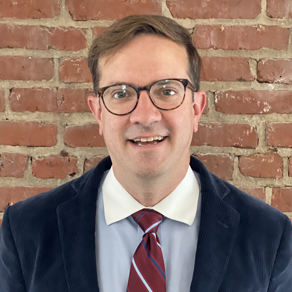Thanks so much to my new colleagues at Truth on the Market for inviting me to join an impressive group of scholars on a blog I have followed for many years now. Chairman Frank of House Financial Services has an interesting thought on how to prevent the next financial crisis. Let’s require hedge funds, along with other private pools of capital, to register with the SEC as investment advisers. But wait, wasn’t Bernie Madoff a registered investment adviser? Yes he was. And did the SEC’s random compliance inspections detect his fraudulent scheme? No, unfortunately they didn’t. Ribstein offers more detail on the OIG report on the Madoff scandal here. But surely, the SEC’s Division of Enforcement responded to multiple tips about Madoff? Well, actually, they investigated Madoff multiple times.
Here are a couple of useful clips from the SEC Inspector General’s Report on Madoff: “The OIG investigation found the SEC conducted two investigations and three examinations related to Madoff’s investment advisory business based upon the detailed and credible complaints that raised the possibility that Madoff was misrepresenting his trading and could have been operating a Ponzi scheme. Yet, at no time did the SEC ever verify Madoff’s trading through an independent third-party, and in fact, never actually conducted a Ponzi scheme examination or investigation of Madoff. The first examination and first Enforcement investigation were conducted in 1992 after the SEC received information that led it to suspect that a Madoff associate had been conducting a Ponzi scheme…. In the examination of Madoff, the SEC did seek records from the Depository Trust Company (DTC) (an independent third-party), but sought copies of such records from Madoff himself. Had they sought records from DTC, there is an excellent chance that they would have uncovered Madoffs Ponzi scheme in 1992.”
Interesting. We imagine the SEC is familiar with the most basic principle of auditing, that obtaining third party verification for randomly selected transactions from sources unlikely to have participated in a possible fraud is the best way to verify reported results. The SEC should be familiar with the principle, as it has always played an important role in oversight of auditing principles used by accounting firms. This principle is important for auditing, but it becomes even more important for an investigation triggered by allegations of fraud.
In fact, the SEC’s compliance staff is so backed up that many hedge funds who voluntarily registered with the SEC (despite the SEC’s mandatory registration requirement being overturned by the DC Court of Appeals in 2006) have complained that despite their high compliance costs for registration they haven’t been given compliance reviews for three years. As such, they can’t obtain the benefit of telling potential clients they’ve been inspected despite having invested in registration and compliance.
I have an alternative plan for hedge fund oversight, not that the Hill is listening, in Dr. Jones and the Raiders of Lost Capital: Hedge Fund Regulation Part II, an SRO Proposal. My suggestion is to take the same approach that we do for broker-dealer regulation, and create a Self-Regulatory Organization for hedge funds. The SEC could facilitate this by, for instance, responding to a mandatory requirement for hedge fund registration by offering exemptive relief for funds registered with the Hedge Fund SRO. To keep the SRO from becoming a vehicle for industry capture, the SEC would play a role in:
i) vetting candidates to the Board to make sure a diversity of fund size and strategy is represented;
ii) approving amendments to the charter of the SRO; and
iii) overturning SRO rules only if they failed a high standard of deference.
The Madoff scandal also puts the Financial Industry National Regulatory Authority (FINRA) in a bad light for failing to respond to Madoff tips as well. And there is something to be said for the idea that doing nothing at all could be the best option. But compared to the Frank proposal, we could expect a Hedge Fund SRO to internalize more of the costs of compliance and result in a more efficient outcome than direct regulation by the SEC. I also developed this idea before the PCAOB constitutionality challenge lit up, so perhaps my idea isn’t quite legal. But that doesn’t mean it might not be a good idea.




